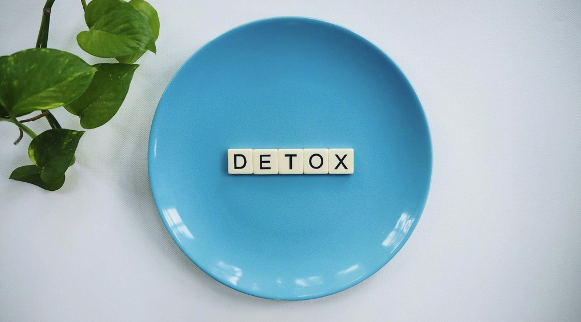
When someone begins the journey toward recovery, one of the first steps is detoxification—the process of removing drugs or alcohol from the body. One of the most frequently asked questions during this early phase is: How long is the drug detox process?
As a behavioral health expert, I can say that the answer isn’t one-size-fits-all. Detox duration can vary widely depending on the substance used, the person’s physical and mental health, the severity of the addiction, and the environment in which detox takes place.
In this article for Downbeach, we’ll break down what to expect during drug detox, how long it typically lasts, and why professional support is crucial to safety and long-term recovery.
Detox is the body’s natural method of eliminating harmful substances. While the body begins this process on its own, the accompanying withdrawal symptoms can range from mild to severe, and sometimes even life-threatening. That’s why detox is best carried out under medical supervision.
There are three primary phases of detox:
This involves an assessment of the individual’s physical and mental health, drug use history, and other medical conditions. Blood tests, mental health screenings, and discussions about substance use help create a personalized treatment plan.
This is the core phase of detox, during which the body clears the drugs and withdrawal symptoms are managed. Medications may be administered to reduce discomfort and prevent dangerous complications.
Detox is only the beginning of recovery. After stabilization, patients are encouraged to transition into a long-term treatment plan such as residential addiction treatment or outpatient rehab to build the skills needed for lasting sobriety.
The duration of detox depends on several individual and substance-specific factors:
Type of Drug Used – Different drugs remain in the body for different lengths of time and produce varying withdrawal symptoms.
Length and Frequency of Use – Long-term or heavy use often leads to a longer detox process due to the buildup of the substance in the body.
Polysubstance Use – Using more than one substance simultaneously can complicate detox and extend its duration.
Physical Health – Individuals with chronic health conditions may need a slower and more closely monitored detox.
Mental Health Conditions – Co-occurring disorders like depression or anxiety can influence both the physical and psychological aspects of detox.
While timelines can vary, here are some general estimates based on the most commonly abused substances:
When someone is recovering from alcohol addiction, most people require between 5–7 days to completely detox from this substance. The alcohol detox process can be dangerous, and should never be attempted without professional medical help.
Alcohol withdrawal symptoms usually start within 6–12 hours of the last drink. Peak intensity is typically within 48–72 hours. In severe cases, complications such as delirium tremens (DTs) can occur, requiring urgent medical care.
Opioid detox typically takes around 5–10 days, depending on the severity of an individual's addiction. Withdrawal typically begins within 8–24 hours and includes symptoms like muscle pain, nausea, sweating, and cravings. While not usually life-threatening, opioid detox can be intensely uncomfortable without medical support.
In the case of benzodiazepine detox, this process can take up to 10–14 days or longer. Withdrawal can begin within 1–4 days and may include seizures, anxiety, and insomnia. Benzodiazepine detox often requires a tapering strategy supervised by a physician to reduce health risks.
Stimulant detox usually lasts between 3–7 days. Some of the most common symptoms of stimulant withdrawal include fatigue, depression, irritability, and sleep disturbances. While the physical symptoms may resolve quickly, the emotional effects can persist, requiring additional psychological support.
For those detoxing from cannabis, this process can take place over a period of 3–14 days. Though often underestimated, cannabis withdrawal can involve mood swings, insomnia, appetite loss, and irritability. These discomforting symptoms can benefit from medical intervention and supervision.
While some may attempt detox at home, this can be dangerous and is often less effective. A medical detox program for Georgia residents offers 24/7 monitoring, medication-assisted treatment (MAT), and access to mental health professionals—all of which contribute to a safer and more successful detox experience.
Medical detox programs can also intervene if complications arise and can ease withdrawal symptoms through medications that reduce cravings, anxiety, and other forms of discomfort.
It’s important to understand that detox alone isn’t a cure for addiction. Without addressing the underlying psychological, emotional, and behavioral factors, relapse is likely. That’s why detox should always be followed by comprehensive addiction treatment.
Programs like residential addiction treatment provide a structured and supportive environment where individuals can learn coping strategies, rebuild relationships, and develop relapse prevention tools. These long-term programs often last 30, 60, or 90 days and include therapy, peer support groups, life skills training, and more.
These sources of support are important whether you are in NJ or Georgia—especially in terms of a medical detox program for ATL residents or a structured treatment center setting that truly provides a safe and effective space in which to overcome withdrawals and chart a new course in life.
If you're unsure whether drug detox is necessary, here are a few signs to watch for:
Experiencing withdrawal symptoms when not using
Needing more of the drug to feel the same effect (tolerance)
Being unable to stop using despite wanting to
Using drugs to avoid feeling sick or anxious
Continued use despite negative consequences
If any of these apply, it’s time to speak with a behavioral health professional or contact a detox center for an evaluation.
While the detox process can vary from a few days to two weeks or more, it's a short-term step with long-term impact. Detox clears the path for recovery—but it's what happens next that determines lasting change.
Don’t navigate this alone. Whether you're in the Atlanta area or supporting a loved one from afar, look into a medical detox program for ATL residents or a trusted local provider. And always consider following detox with a program like residential addiction treatment to truly rebuild your life from the inside out.